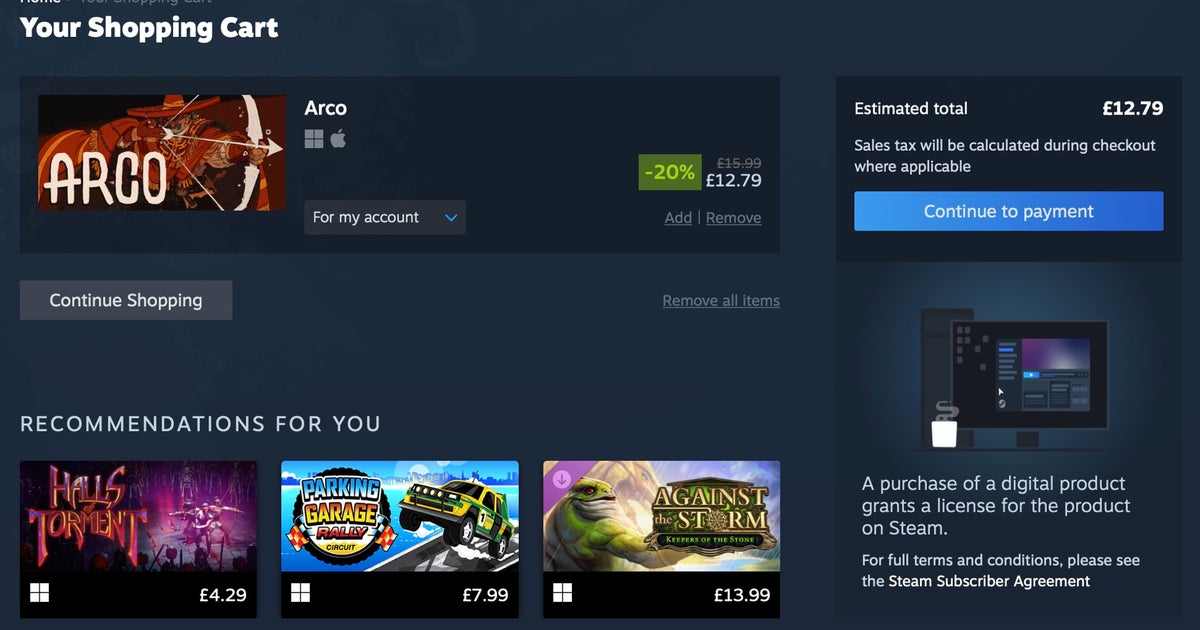Ahead of new California legislation requiring storefronts to make it clear customers are only buying a license for digital content rather than outright owning it, Steam has implemented a message at the point of purchase doing just that.
California’s new legislation, which was signed into law by governor Gavin Newsom at the end of September, is intended to make consumers more aware of the sometimes-temporary nature of digital ownership. It explicitly prohibits sellers from using the words “buy, purchase, or any other term which a reasonable person would understand to confer an unrestricted ownership interest in the digital good” – instead requiring them to display a “clear and conspicuous statement” explaining the nature of their transaction.
And while the legislation, officially known as AB 2426, doesn’t formally comes into effect until next year, Valve has already tweaked Steam’s shopping cart to highlight customers are buying a license – with the changes being displayed internationally, including in the UK. Steam’s shopping cart now features a short message below the ‘Continue to payment’ button, reading, “A purchase of a digital product grants a license for the product on Steam.” That’s followed by a link to the Steam Subscriber Agreement, containing additional information.
California’s new legislation doesn’t apply to games offered as part of a subscription service, to games “sold” or given away for free, or to games that can be downloaded and played permanently offline. That hasn’t stopped GOG, a storefront known for its commitment to DRM-free games, from getting a bit cheeky in light of Steam’s changes.
“Since checkout banners are trending,” the company wrote in a post on social media, “we’re thinking of putting one up ourselves.” It included a GOG shopping cart mockup appended with a new message of its own: “A purchase of a digital product on GOG grants you its Offline Installers, which cannot be taken away from you.”
Legislation AB 2426 follows several high profile instances of games being yanked from owners’ libraries in recent times. Ubisoft made headlines earlier this year after it began quietly revoking players’ licenses to The Crew, and PlayStation opted to withdraw access to PS5 shooter Concord (albeit while providing refunds) after announcing it was shutting servers down.
The controversy caused by Ubisoft’s decision in particular led to revitalised discourse around video games preservation, and the establishment of Stop Killing Games – an initiative aiming to mount political and legal challenges to the increasingly common occurrence of purchased games becoming unplayable. And while legislation such as AB 2426 doesn’t fix the issue at its root, it does at least seek to better inform consumers ahead of a purchase.



